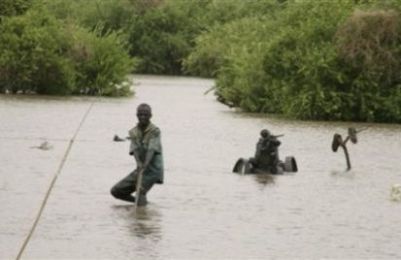Nile basin countries to discuss water shares
June 17, 2017 (KHARTOUM) – Uganda will host a meeting of the Nile Basin heads of states on Wednesday to resolve differences on the Entebbe Agreement, said press report in Egypt Saturday.

Following the signing of Entebbe Agreement in 2010, Egypt and Sudan, who own over 85 percent of the river waters according to the colonial-era treaty, froze their activities in the Nile Basin Initiative (NBI), citing concerns about its reallocation of Nile water quotas and other provisions.
But the two downstream countries resumed their participation at a meeting in Khartoum in February 2015.
In press statements, Saturday, the Egyptian Deputy Foreign Minister for African Affairs Hamdi Loza said the River Nile water file would be discussed at a presidential summit because “it is not confined only to technical aspects but it includes outstanding political issues that must be discussed”.
He pointed that his country will provide its own vision to resolve the outstanding issues, saying the meeting, which was supposed to be held on May 25, was delayed because Uganda was hosting a refugee summit at the same time.
It is noteworthy that the meeting is considered the first of its kind at the level of the heads of states since 2010.
With an estimated length of 4,132 miles, the River Nile is considered the longest river in the world. Its catchment area is shared by the 10 countries of Burundi, Rwanda, DR Congo, Uganda, Kenya, Tanzania, South Sudan, Sudan, Egypt and Ethiopia, better known as the Nile Basin states.
The Entebbe Agreement outlines principles, rights and obligations for cooperative management and development of the Nile Basin water resources. It also sets out principles and obligations of member states regarding the use of the basin’s water resources.
The framework also seeks to promote integrated management, sustainable development, and harmonious utilisation of the water resources of the Basin, as well as their conservation and protection for the benefit of present and future generations.
(ST)
